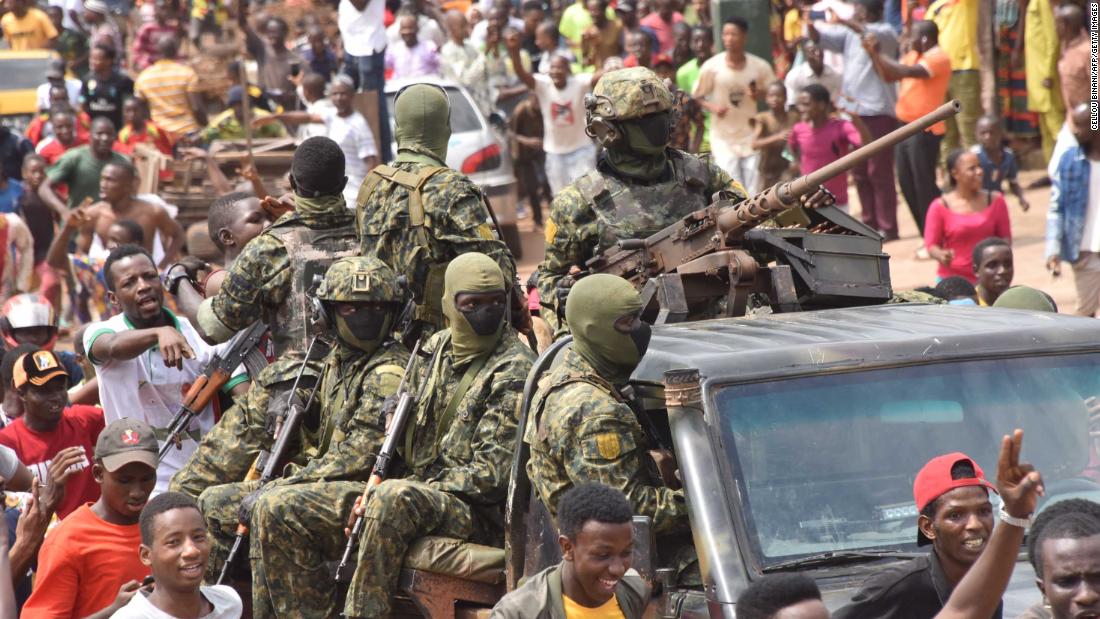These power grabs threaten a reversal of the democratization process Africa has undergone in the past two decades and a return to the era of coups as the norm.
In the early postcolonial decades when coups were rampant, Africa’s coup leaders virtually always offered the same reasons for toppling governments: corruption, mismanagement, poverty.
While well-worn, these justifications still resonate with many Africans today for the simple reason they continue to accurately depict the reality of their countries. Furthermore, in many countries, people feel these problems are worsening.
Furthermore, 72% believe ordinary citizens “risk retaliation or other negative consequences” if they report corruption to authorities, a sign Africans believe their public institutions are not just partakers in, but active defenders of, corrupt systems.
When it comes to poverty, an already tragic situation has been worsened by the battering Africa’s fragile economies took from the coronavirus pandemic.
These conditions create fertile conditions for coups and for increasingly desperate young Africans who have lost patience with their corrupt leaders to welcome coupists promising radical change, as was witnessed on the streets of Guinea following the takeover, with some elated Guineans even kissing the soldiers.
But as with the coups of the 1970s these scenes of joy will likely be shortlived, says Joseph Sany, Vice President of the Africa Center at the United States Institute of Peace. “The initial reaction of what you see on the streets will be of joy, but very soon, people will be demanding action… and I’m not sure the military will be able to deliver on the expectations, basic service delivery, more freedoms,” he says.
Threat to democratic gains
What is clear is that these coups pose a serious threat to the democratic gains African countries have made in recent decades. Worryingly, research shows that many Africans are increasingly ceasing to believe elections can deliver the leaders they want.
In other words, less than half believe elections guarantee representativeness and accountability, key ingredients of functional democracies.
Across 11 countries polled regularly since 2008, the belief elections enable voters remove non-performing leaders has dropped by 11% points among citizens, according to the survey. It is not that Africans no longer want to choose their leaders via elections, it is simply that many now believe their political systems are gamed.
The African Union is rightly condemning Guinea’s coup, but its response to such constitutional abuses has been muted.
These double standards and perceived elite conspiracies create the perfect environment for young swashbuckling officers like the 41-year-old Doumbouya to step in and promise to save the day.
It is perhaps no coincidence Doumbouya quoted the feisty Rawlings, who was very effective at expressing the anger Ghanaians felt towards their political elites when he led military juntas in the 1980s. Desperate citizens living in political systems they often rightly believe are fixed can easily be seduced by anti-elite, anti-corruption rhetoric coupled with the promise of the new.
We should, unfortunately, prepare ourselves for the eventuality of more coups in Africa in the coming years. They are not to be expected in richer countries with strong institutions such as South Africa, Ghana or Botswana but in the poorer more fragile states. As are Mali, Niger, Chad and now Guinea where coups and coup attempts have recently occurred.
This increasing probability of coups will make Africa in general less predictable and stable, a negative for investors that could end up worsening the economic situation.
Can this undesirable trend be reversed? Yes, but while the international condemnations of coups in Guinea and elsewhere are crucial as deterrents to other would-be power grabbers, the only actors who truly have the power to reverse this worrying trend are African leaders themselves.
They are the ones in charge on the ground and it is their response to these recent events that will be the deciding factor. They need to reignite the belief democracy can deliver for Africans. But if the problems still being cited to justify coups continue to worsen in today’s African democracies, then the temptation to try something else will continue to be dangerously seductive, both for coupists and citizens alike.
